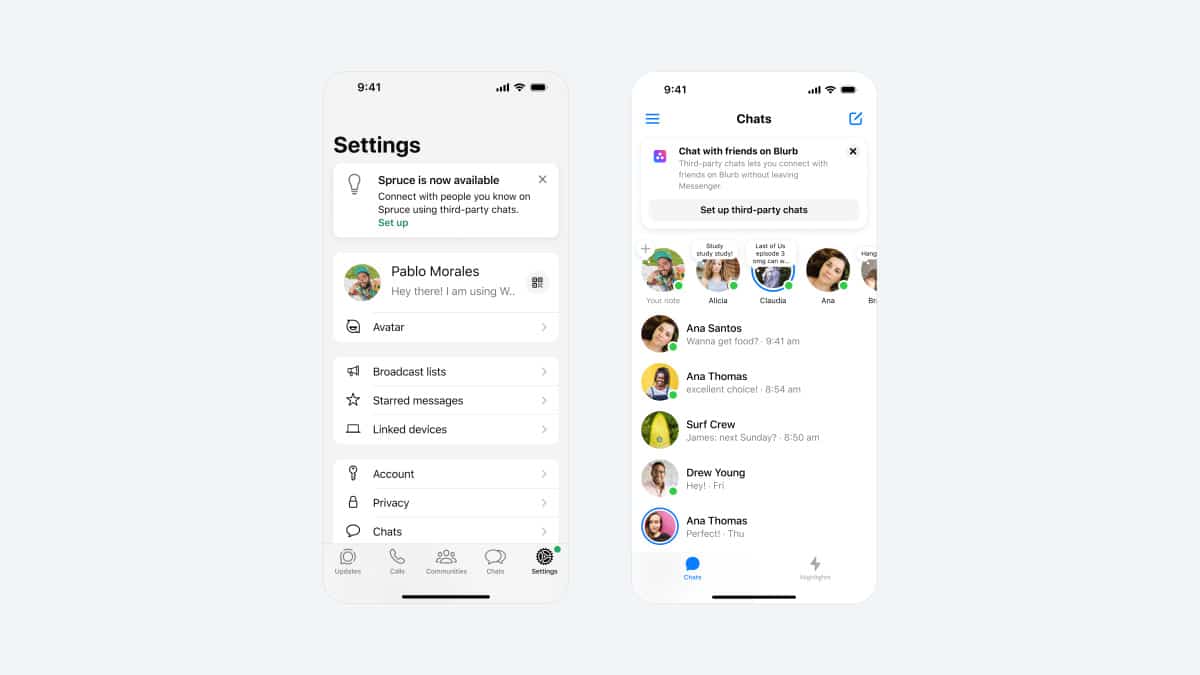Meta has been working on third-party chats for WhatsApp and Messenger for the past few months, and today shared what the experience and features could look like for users.
Under the European Union’s Digital Markets Act (DMA), Meta is required to allow users of its messaging apps in Europe to connect with other people via third-party messaging services.
The company has been working on the technical solution for third-party chats since March 7th, when the DMA came into force in Europe. Since then, it has been building new features, creating a new user experience, and receiving feedback on this new interoperability with third-party messaging apps.
In 2025, in line with the DMA, Meta will include an option to create groups, with video and voice calling coming in 2027.
New Notifications, Features, and Options for Third-Party Chats
Meta has built new notifications into WhatsApp and Messenger that will let users know each time a new third-party messaging app that chooses to interoperate with the apps becomes available.?

An onboarding tool helps users find out more about third-party chats and how they work, as well as guiding them through turning the feature on.
When the feature is enabled, users are given options such as which third-party apps they want to receive messages from and how they’d like to manage their inbox.
Meta will provide users with two options for inbox management. Users can either have third-party messages delivered to a separate folder, keeping them separate from their current Messenger or WhatsApp inbox, or they can choose a combined inbox with all their chats in the same place. This setting can be changed at any time.

Although the DMA only requires “basic” features for third-party messaging, Meta is providing rich messaging features such as read receipts, typing indicators, and reactions.

The Privacy and Security Challenges of Third-Party Chats
Earlier this year, Meta published a blog post about the technical challenges of building third-party chats in a way that preserves user security and privacy. In that blog post, Meta stated that it must enable interoperability with other services within three months of a request being received, but that it “may take longer before the functionality is ready for public use.”
Messenger and WhatsApp use end-to-end encryption (E2EE) to ensure nobody else can intercept or read users’ messages. Any messaging apps that interoperate with Meta’s apps will require to use the Signal protocol, the foundation for E2EE communications, or a compatible protocol with the same safety guarantees.
The blog post also spoke of Meta’s technical solution for third-party chats building on its existing architecture, which means enhanced privacy for users, whose personal data is only exposed to Meta’s servers rather than third-party ones.?
Finally, Meta said that it recognized that “preserving privacy and security is a shared responsibility” and that it would continue collaborating with third-party messaging services.
Users will only see the third-party chat option when that messaging service has “built, tested, and launched the necessary technology to make the feature a positive and secure user experience,” which means it could be a while until EU users see the option for third-party chat in WhatsApp and Messenger.











